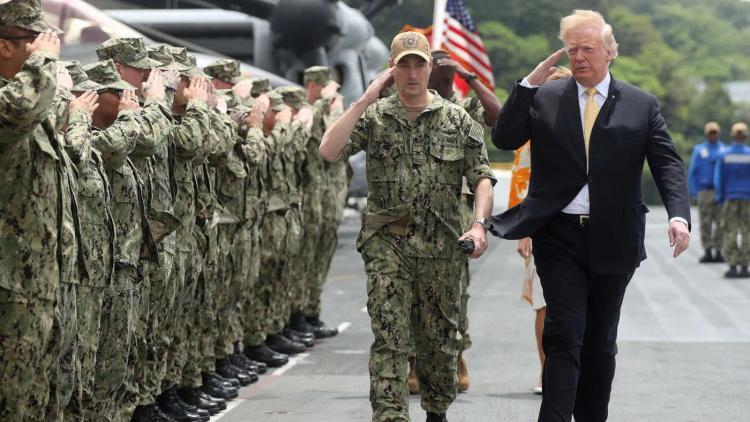The United States, long recognized for its global military reach and history of foreign interventions, is once again at the center of controversy—this time involving Nigeria.

President Donald Trump recently redesignated Nigeria as a “Country of Particular Concern,” alleging widespread persecution of Christians. He announced the designation through a post on Truth Social, claiming that “Christianity is facing an existential threat in Nigeria,” and accusing “radical Islamists” of carrying out mass killings.
Trump cited figures suggesting thousands of Christians have been killed and directed the U.S. Department of War to prepare for “possible action” should the violence continue. He further warned that the United States would immediately halt all aid to Nigeria if President Bola Tinubu’s administration failed to stop the alleged attacks.
“If the Nigerian Government continues to allow the killing of Christians, the U.S.A. may very well go into that disgraced country, ‘guns-a-blazing,’” Trump wrote. He added that any U.S. strike would be “fast, vicious, and sweet,” targeting what he described as Islamic terrorists responsible for the killings.

Secretary of War Pete Hegseth reinforced Trump’s message on X, stating that the department was “preparing for action” and insisting that the killing of Christians “must end immediately.”
The Nigerian government has firmly denied the allegations, insisting there is no systematic or religiously motivated campaign against Christians. Authorities say both Christians and Muslims have suffered casualties in attacks carried out by insurgents, bandits, and other armed groups.
Trump’s comments have sparked renewed debate about U.S. interventionism. Research from the Military Intervention Project shows the United States has been involved in more than 390 foreign military operations since 1776. Some of the most consequential include:

Afghanistan (2001): The U.S. toppled the Taliban after the 9/11 attacks, but the group regained control in 2021 after two decades of war.
Iraq (2003): The invasion over alleged weapons of mass destruction—later proven nonexistent—destabilized the country and contributed to the rise of ISIS.
Libya (2011): A NATO-led intervention led to the fall of Muammar Gaddafi but plunged Libya into years of conflict and fragmentation.
Vietnam (1955–1975): A long and bloody war that ended in U.S. withdrawal and the unification of Vietnam under communist rule.

Japan (1941–1945): The U.S. bombings of Hiroshima and Nagasaki forced Japan’s surrender and reshaped the nation through post-war occupation.
Given this history, global observers are now asking a critical question: What would a U.S. intervention in Nigeria mean for West Africa—and for world stability—if Trump follows through on his threat?




